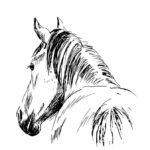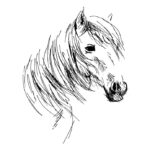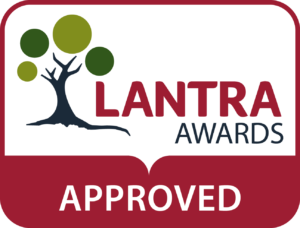Applied Equine Psychology Course
This course offers a solid foundation in applied equine psychology, equipping students with the knowledge and skills to manage and interact with horses in a way that supports both their mental and physical well-being.
EQUINE BEHAVIOUR AFFILIATION
Applied Equine Psychology Course
About The Course
This course is the foundation for professional training to become an EBA Registered Equine Psychology Specialist, but is also appropriate for other equine professionals and horse owners who wish to expand their knowledge, skills and competence to benefit the horses around them.
As a student, you will be provided with a solid foundation in applied equine psychology. You will be supported in the practical application of tried-and-tested psychological models with your horse(s) as a result of lectures, coursework, individual tuition and practical work. We provide the framework and tools for answering the question ‘how can we help’? any equine who is displaying challenging behaviours, or simply not thriving in their environment.
If you would like to:
- better understand horses’ experiences and reactions in a domestic setting
- feel more confident about your equine management decisions
- improve mental well-being and form healthier relationships with equines
then this course is for you.
Feedback from 2024/25 students
“Anyone who wants to learn about their equine, themselves and the relationships in between – this course is for you.”
“A journey of epiphanies, self-discovery, deep reflections and plenty belly-laughs; Felicity skillfully provides a safe classroom environment, shared with like-minded people.”
“Having been around horses all my life in thought I knew and understood them. However within weeks of starting this course I realised my understanding only just touched the surface. Simple changes and understanding can have a massive impact on the lives of our horses and improving their mental well being. Also learnt so much about myself along the way.”
“This course has been extremely valuable to me and has shaped the way I think about horses, myself, my actions and the world. Felicity is ahead of the times with her knowledge about equines and I would highly recommend this course to anyone who is involved with horses.”
“Speaking as someone who was not sure to attend because of my english. I was never really good in it, but I read books and watch movies and I was able to apply my knowledge on this course. The whole course is amazing experience, it’s a process you need to finish and after that your puzzle will be complete. It will help you not only to understand your horses, but it will help you with your day to day life – with parents, children, colleagues. You will caught yourself thinking about things you never thought before. For me… it is better then university, better then any book. It’s complex, its practical and you have support with every discrepancie you have during the coursework. Best decision in my life”
“This course could be a little bit mind blowing and I understand it might not suit everyone. For me personally, the offered knowledge has deeply resonated in my soul and I absolutely loved the journey it offered”
Contents
The course is designed to complement the book ‘Applied Equine Psychology: the art and science of helping horses’, written by EBA co-founders Felicity George, Dr. Marie-Louise Holmes and Sharon Smith.
The competencies you will develop on this course include:
- Observing and reflecting on equine body language within a biopsychosocial context.
- Assessing and improving domestic environments.
- Assessing and improving mental well-being for domestic equines.
- Working with trauma.
- Practical assessment of healthy equine relationships.
- How to build a healthy horse/human relationship and improve attunement with equines.
- How to help horses to learn.
- Applying Trans-species Systemic Formulation® for your own equines.
- Applying equine psychological models and theories to all aspects of day-to-day life with horses.
- Developing critical thinking skills and reflective practice.
The main topics covered in the course are:
- A simple model for understanding mammalian brains and how stress influences them.
- The context in which we evaluate mental well-being; environmental mismatch and other challenges.
- Assessing and improving mental well-being.
- Attachment theory; horse/horse and horse/human relationships.
- Understanding and working with trauma.
- Learning theory
- Trans-species psychology.
- Big picture thinking: The biopsychosocial model.
- Trans-species Systemic Formulation®.
- The reflective scientist-practitioner model.
The modules which deliver this are:
Module 1: Body language
This module will help learners firstly to simply observe equine body language in detail without interpretation. It then considers what horse may be communicating both consciously and unconsciously; where subtle changes in body language reflect changes in emotional state for example.
Practical work will develop the learner’s skills in applying the theory objectively to the horses they encounter in real life.
Module 2: Trans-species Psychology
Explaining the principles of trans-species psychology, and its practical application to horses and the humans around them.
Module 3: Human Psychology
This module looks at aspects of human psychology that will help learners to better analyse their own beliefs, biases, needs and expectations, as well as those of others in the equestrian world. This helps greatly when objectively considering the ways in which we manage and interact with horses.
Module 4: Mental Well-being – Setting the Scene
This module provides a working definition for mental well-being and considers the domestic environment in which we are working. The evolution of equines and how feral horses live is discussed to inform understanding of environmental mismatch. Other systemic challenges to the mental well-being of domestic equines are discussed.
Module 5: Assessing and Improving Mental Well-being
This module introduces the factors influencing mental well-being, at the levels of all mammals, equines and the individual.
The impacts of chronic stress will be discussed. Assessing mental well-being will be discussed and practiced, and learners will experiment with environmental and management changes to improve mental well-being for equines in their care.
Module 6: Attachment theory and domestic equine relationships
This module presents attachment theory, then applies it to domestic equines. Videos and practical work with horses will consolidate the practical application of the theory.
Module 7: Assessing and Improving Horse/Human relationships
Module 7 examines horse/human relationships, with attachment theory informing the discussion. Ways of assessing and improving relationships will be discussed and practised, to consolidate learning.
Module 8: Working with Trauma
This module defines trauma and post-traumatic stress. How to recognise signs of possible post-traumatic stress, and how to help are covered.
Module 9: Trans-species Systemic Formulation®
Module 9 will bring together all the theory learned so far and involve the learners in using the theory they have learned so far within the framework of formulation, to determine how to help in a number of difficult scenarios. Each class will be a formulation, done as a group.
Module 10: Learning Theory
Covers the basics of learning theory in the context of the other psychological theories already presented.
Module 11: Guided Learning
This is a very practical module, presenting ways in which to use the theory already presented to support equine learning. The learners will experiment with creating learning environments and helping equines to learn.
Module 12: Critical Analysis of Horse/Human Interactions
This module involves some theory on analysis then lots of practising, looking at videos and written work and analysing it in the context of the theory taught on the course.
Module 13: Developing your Practice
The final module consolidates putting theory into practice, students will be able to bring problems to discuss and reflect on their own practice,
.
Delivery
The course consists of:
- 50 online classes. Each class is 2 ½ hours long, and is interactive, including video analysis and many group exercises and discussions. 125 hours in total.
- 4 individual sessions with a tutor; this helps us to help you to get the most out of the course, and these sessions can be used to discuss any course-related topics.
- 12 hours of practical work with real horses. Practical sessions are run with small groups. For students who cannot attend live practicals, an additional 6 online sessions will be provided; students will take videos of themselves with horses and these will be discussed.
We can offer some flexibility in delivering practicals and individual sessions to suit individual needs.
Online classes will be on Wednesday or Thursday evenings, 18.30 – 21.00 UK time.
There will be breaks in teaching throughout the course, so the total duration of the course will be 14 months attending classes, with an exam two months after classes end.
Assessment and Qualifications
Assessment will be done through 10 coursework assignments and a final exam. Students who pass all coursework and the exam will be awarded a ‘Certificate of completion’ by the Equine Behaviour Affiliation. A LANTRA certificate of competence is awarded to students completing the course.
.
Pricing
A deposit of £100 is required to secure your place upon successful application.
Once classes start, there are 14 monthly instalments of £150 to be paid by standing order. This covers all online classes, marking coursework, 1-1 sessions online and practical sessions (or additional 1-1 online sessions for students who cannot attend practicals).
The examination fee is £250, which is only payable when registering to sit the exam.
The full cost of the course and exams is £2,550, including Lantra certification.
We welcome applications from all sectors of society. Please contact felicity@equinebehaviouraffiliation.org to discuss any aspect of the course or perceived barriers.
Application Process
The next course is open for applications; please contact us at secretary@equinebehaviouraffiliation.org if you would like to be sent an application form, or download here
The starting date of the next course is to be confirmed; currently expecting this to be late summer 2026.
Felicity George MPhil, EBA REPS
Membership
Join EBA
EBA is committed to supporting members through professional accreditation, education and opportunities for development.
We have 3 levels of Membership:
- Supporter
- EBA Student
- Professional
Visit our Membership Page for details on what each level offers and how to join.

Join as a Supporter
For any individuals who are interested in equine behaviour but who are not practising as an EBA Registered Equine Psychology Specialist.

STUDENT MEMBERSHIP
For anyone currently training with the EBA. You can join EBA as a student by registering and being accepted for any of our courses.

